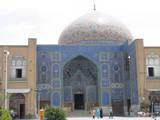Conference I: Humanities and Social
Sciences in an African Context: Education for Life
This conference aims at a
comprehensive examination of the roles of the humanities in
higher education and anevaluation of the relevance of the
humanities in terms of education for life in an African
context.
This calls for a serious and substantial engagement with two
recent important reports on the role of the humanities: The
Charter for
Humanities and Social Sciences (complied
by the Department of Higher Education and Training) and The
Consensus Study on the State of the Humanities (complied
by the Academy of Science of South Africa). Both
documents call for serious attention as they will influence
the future direction of higher education. But questions
arise as to the way in which these documents diagnose the
decline of the humanities and about the various responses
they make to their present state. A possible way of
approaching the documents would be to ask: What is the
underlying model of the university they present? What is
implied about the differentiation of the humanities and the
sciences and about their proper relationship? What is
entailed for the relationship of generalist to specialist
studies and of undergraduate and postgraduate education?
Generally: What is the university for?
It is important to reflect on the
state of play in the various disciplines: in the humanities
and the social sciences. Why have some disciplines been more
marginalized than others? Is it true that the humanities
?have run out of steam? (Latour)? How has the so-called
crisis in the humanities played itself out in different
contexts? What are the epistemological fault lines within
the humanities and between the humanities and the sciences?
To what extent has the crisis in the humanities been
self-inflicted? What have the sciences to teach the
humanities and vice versa?
One hope for the conference is that
communication between the disciplines may promote
interdisciplinary thinking and further reflection on the
nature of the university. What is being said in the various
disciplines? Do disciplinary autonomy and specialization
need to be complemented by genuine communication? What do
people in other disciplines need to know about your
discipline in order better to contribute to the education of
a wide range of students?
Conference II: Thomisms in
Contemporary Africa
The workshop is to explore the
resources of the tradition in relation to the general theme
of education for life in an African context. The workshop is
open to all but particularly to those who wish critically to
explore the philosophical dimensions of the tradition and
its relation to the present. Hence, the theme: Twentieth
Century Thomisms and Contemporary Philosophy.
The aim will be to examine both
classical and contemporary Thomisms in dialogue with
contemporary philosophical movements such as analytical
philosophy, phenomenology, hermeneutics, and critical
theory. Focus points could include the emergence of what is
called ?Analytical Thomism? or the use of phenomenological
methods in Thomism. At the same time Thomistic themes in
ethics should be related to utilitarianism, deontology and
analytical metaethics. The resurgence of metaphysics in the
analytical tradition must be related to themes in Thomistic
metaphysics and its personalism to Kantian and other
approaches to human dignity, including approaches found in
African philosophy. The continuing relevance of important
thinkers such as Maritain and Gilson or Charles Taylor and
MacIntyre are to be discussed.
Logistics
for both Conferences
This is a first call for papers; the
second call include names of keynote speakers and full
details concerning
accommodation and
conference schedule. Send titles of planned presentations
and all inquiries and questions about the conferences to:
Professors Gerard
Walmsley and P. Harrison
The Philosophy Department
St. Augustine College
Johannesburg, South Africa
E-Mail: P.Harrison@staugustine.ac.za





